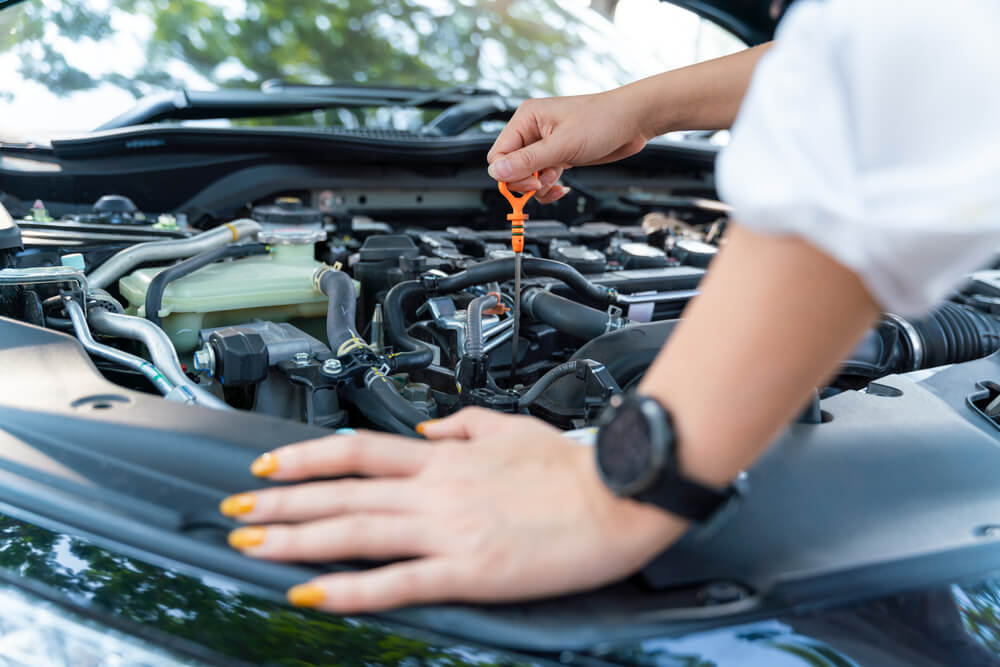How Often to Change Fuel Filter?
What's on this Page?
How long does a fuel filter last?Symptoms of a faulty fuel filterWhere is the fuel filter located in my vehicle?
20 March 2023 · Last updated on 20 March 2023
Not only is the filter liable for accumulating contaminants, it also sustains the condition of the fuel injectors. The fuel filter prevents waste from reaching the engine and stores it all in one place. Typically, replacing your fuel filter every 50,000 km or two years is a smart idea. However, this rule of thumb does not apply to each fuel system, especially when it comes to a newer car model. If you eventually fail to get your filter replaced in the course of necessity, your vehicle may face a significant degree of instability. When the fuel filter's condition worsens, it may often get clogged up or accumulate impurities reducing the engine's overall performance. The fuel filter's position depends on the type of car. Some cars are mounted on the fuel line with fuel filters, whereas some have them in their fuel tank. Wherever your fuel filter is located, it is essential to keep an eye on signs to keep your vehicle reliable. Depending on the filter's position, the fuel filter replacement could cost between $120 and $400.
How long does a fuel filter last?
Just because a fuel filter can last 150,000 km doesn't mean you should risk it - once the debris forms a bottleneck at the fuel pump can have serious difficulties. You can always have your mechanic do a fuel pressure test to check whether you should replace your fuel filter or not. It's their job to analyse the amount of PSI the fuel pump generates at the fuel rail. If your car has a faulty fuel filter, it should have pressure produced at a reduced rate. In general, the amount of pressure for a fuel-injected vehicle lies at a range of 30 to 60 PSI. While the owners manual provides detailed information, most manufacturers recommend that the fuel filters be changed every 50,000 km to 100,000 miles. Many mechanics regard this estimation as too lax and, suggest the fuel filter it should be cleaned or replaced every 20,000-50,000 km.
Symptoms of a faulty fuel filter
A number of symptoms can be seen when a fuel filter becomes defective. The most commonly symptom of a defective fuel filter is a problem starting the car. Although a dirty fuel filter can lead to ignition, a totally obstructed filter can cause engine failure. If your car sputters, the fuel filter may have a slight blockage due to impurities or dirt– a warning that it may need a replacement soon. In addition, rust or debris may also clog the fuel filter.
Where is the fuel filter located in my vehicle?
The position of the filter depends on the make and model. Every fuel filter is different. The filter may or may not be part of the integrated fuel pump unit inside the fuel tank of several new models. Generally, the fuel filters are positioned at the apex of a car's fuel system. The outside air is captured and returned by the injector valve, along with part of the fuel. Newer vehicles are fitted with a gas tank filter that can only be replaced when the fuel pump assembly is altered. In other vehicles, the shield outside the tank can be placed on the vehicle frame. Some vehicles are equipped with a fuel filter inside the tank, while others outside the fuel line. In order to find out the answer regarding the location of your fuel filter refer to a manual related to your vehicle. The South Australian state government has a handy guide to fuel systems, but check to see if any laws apply to your area.








